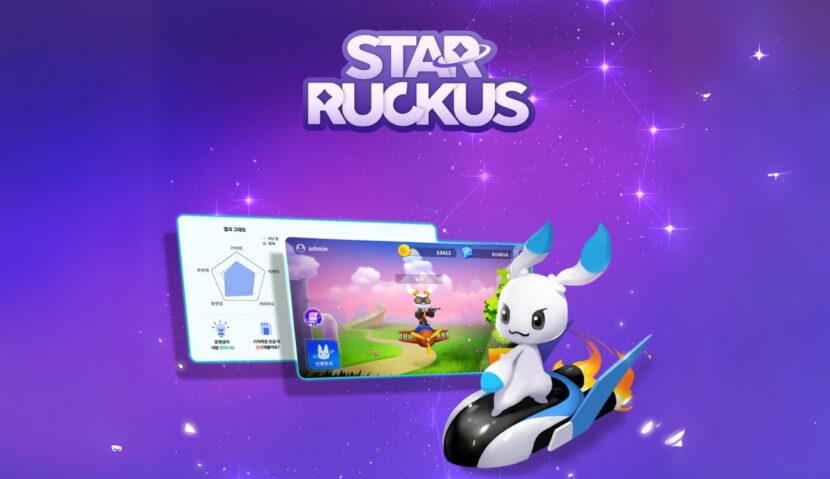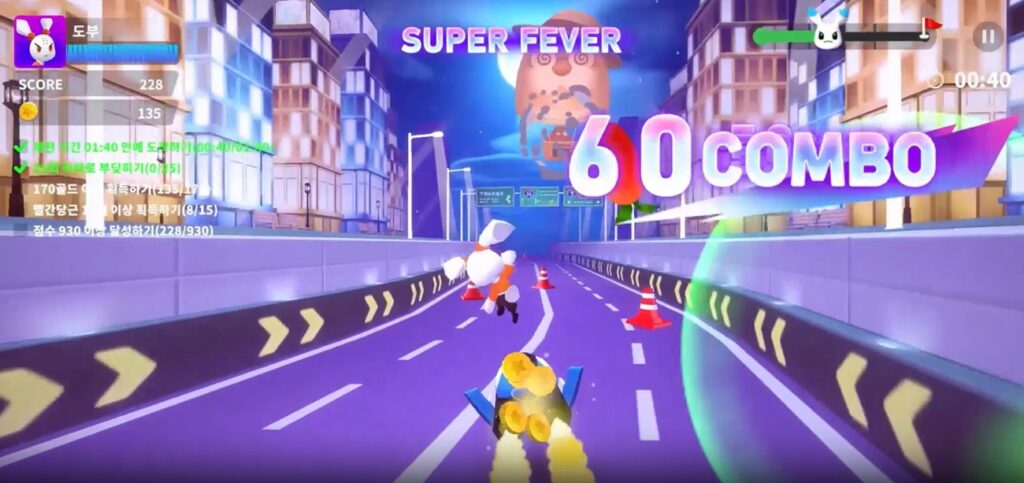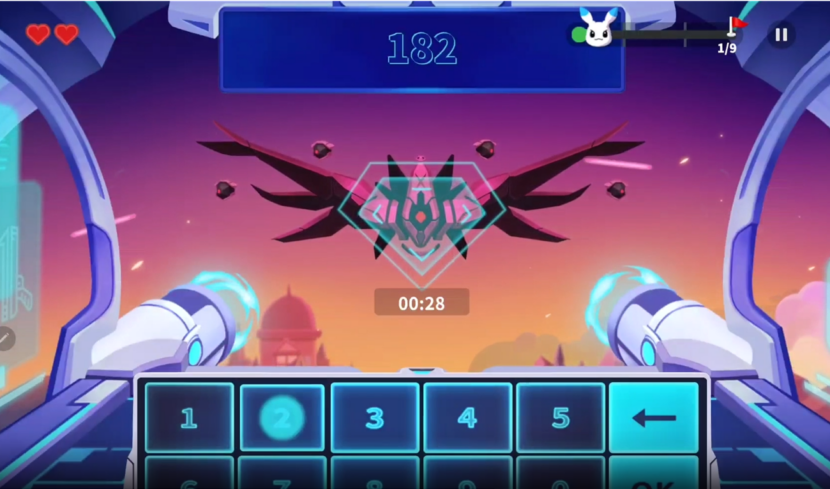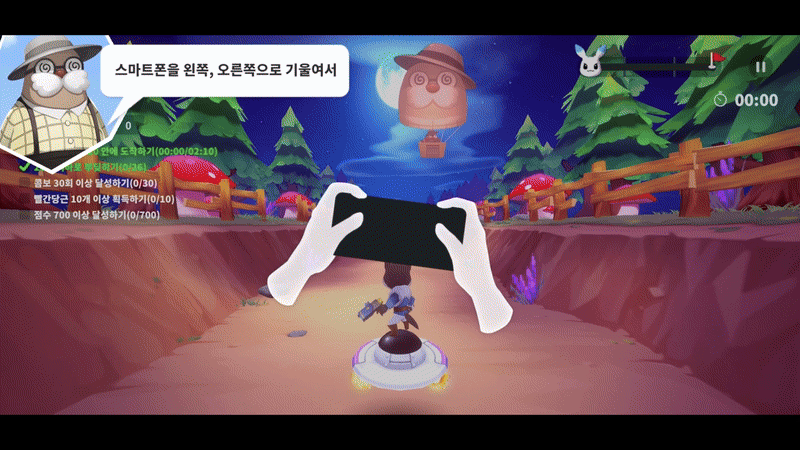


This is probably more effective than medication. Even ADHD can focus.
ㆍ‘Emotiv‘ has developed technology that uses games based on cognitive modeling to treat ADHD in children ages 6 to 12.
ㆍThe company has recently secured an impressive amount of $2.3 billion in pre-Series A funding.
ㆍThis could be the future of digital therapeutics: No hospitals, no drugs!

Prescription: Play this game
Are you having trouble concentrating or feeling easily distracted? If so, you may have ADHD. Maybe since you were a kid. Assuming you’re back in your childhood, I have a suggestion for you: consider playing games. There’s a way for you to combine cognitive testing with ADHD treatment without having to visit the doctor. You can achieve this by playing a mobile game called Star Ruckus, developed by a South Korea startup named Emotiv. Although the game appears to be a simple and fun mission on the surface, it uses a cognitive modeling process to train children’s brains.
Star Ruckus is a cognitive training game that consists of various missions aimed at strengthening the neural pathways involved in key cognitive areas. These areas include working memory, inhibition, attention, cognitive flexibility, and processing speed. For instance, the inhibitory control mission requires players to make quick decisions regarding a target and non-target. The child player is randomly given an enemy airplane (target) and a friendly airplane (non-target). They have to decide whether to continue or stop their plans and actions in a Go/No-Go Task. A child without ADHD might eliminate an enemy airplane and then suddenly see a friendly airplane and realize that it is a non-target and not press it. However, children with ADHD have a harder time controlling this. The game reminds the player of the goal and the target each time they make a mistake, training their inhibitions and helping them improve their performance.


4 keywords
To understand this game, you only need to remember these terms.
1. Gamification: Players can use a story or game mechanic from Star Ruckus, a game where they develop their character and create their own village, to engage and entertain users in non-game contexts. By introducing a child’s favorite game as a tool to treat ADHD, we can help them become more engaged and create a rewarding psychological system.
2. Cognitive modeling: Playing a game creates a digital avatar that replicates the cognitive state of the child. This avatar repeats the task for the user through machine learning, mimicking their cognitive state. By using a digital avatar to perform the tasks required for ADHD screening, the screening process can be reduced from two hours to just 15 minutes.
3. Digital twin: The ADHD test involves creating a digital twin that replicates the user’s data. A digital twin is a technology that creates a virtual replica of production and cultivation facilities and runs simulations to detect abnormalities before they are put into operation. This technology is used to test children with ADHD by examining the physical and psychological conditions of avatars in the game’s virtual world.
4. Data analysis: The dashboard displays the cognitive status of the child, which has been collected through the game. Parents can use this analysis report to check the child’s cognitive status in real time and manage it systematically. The aim is to enhance the child’s cognitive ability and alleviate symptoms by using cognitive training based on the data.

ADHD equals ASAP
Emotiv highlights the importance of early diagnosis and treatment of ADHD in childhood. Currently, around 180 million adults suffer from ADHD, and most cases start in childhood. If left untreated, symptoms can persist into adulthood. Unfortunately, it takes an average of more than two years for a child to visit a doctor for treatment due to their resistance. To address this, Emotiv has developed a game-based approach to lower resistance and make therapy more accessible. Emotiv’s Star Ruckus reduces the cost of play therapy in hospitals by 90% and cuts hospital visits by over half. Additionally, the game allows for self-diagnosis without time or space constraints, enabling early detection of potential ADHD cases. Emotiv’s mobile game is not just a game – it’s a digital therapy solution that helps parents capture all of their child’s golden time.
Is it possible to enjoy therapy?
The question at hand is whether a digital cure can be more effective than a medication prescribed by a doctor. The answer to this question depends on the quality of the digital content. There may come a time when software designed for digital environments, such as PCs, mobile apps, VR, AR, AI, big data, games, and chatbots, can provide effective treatments. For instance, in the near future, people may be able to treat depression by using a VR device to access a virtual reality environment and experience scents in a 4D space, all without having to visit a psychiatrist. (It may even be possible to touch a virtual structure with one’s hand, triggering a sensor that releases a substance similar to a drug into one’s nostrils.)
Emotiv’s mission is to make ‘therapy fun’, and they take pride in their content. They are currently collaborating with a prestigious medical institution in Korea to ensure that their digital therapies are truly therapeutic. To identify the cognitive elements and assessment methods needed to measure ADHD in children, they analyzed tasks used by medical centers, over 200 papers, and consulted with professors. They were able to integrate the game with various assessment tasks such as the Test of Variable Attention (TOVA), the Continuous Performance Test (CPT), and the Attention and Concentration Test (ADS). Emotiv recently concluded a $2.3 billion pre-Series A round in November 2023 and has obtained IND approval from the Korean Ministry of Food and Drug Safety for a digital treatment for ADHD. Unlike drugs, their content is free of toxicity and side effects, making it sustainable. A world where therapy is enjoyable is on the horizon.

